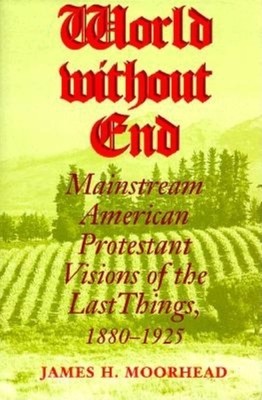
- We will send in 10–14 business days.
- Author: James H Moorhead
- Publisher: Indiana University Press
- ISBN-10: 0253335809
- ISBN-13: 9780253335807
- Format: 16.2 x 24.2 x 2.6 cm, hardcover
- Language: English
- SAVE -10% with code: EXTRA
Reviews
Description
"In this compelling intellectual and social history, Moorhead argues that for mainline Protestants in the late 19th century, time became endless, human-directed and without urgency. . . . Moorhead offers some brilliant observations about the legacy of postmillennialism and the human need for a definitive eschaton." --Publishers Weekly
In the 19th century American Protestants firmly believed that when progress had run its course, there would be a Second Coming of Christ, the world would come to a supernatural End, and the predictions in the Apocalypse would come to pass. During the years covered in James Moorhead's study, however, moderate and liberal mainstream Protestants transformed this postmillennialism into a hope that this world would be the scene for limitless spiritual improvement and temporal progress. The sense of an End vanished with the arrival of the new millennium.
EXTRA 10 % discount with code: EXTRA
The promotion ends in 19d.05:32:38
The discount code is valid when purchasing from 10 €. Discounts do not stack.
- Author: James H Moorhead
- Publisher: Indiana University Press
- ISBN-10: 0253335809
- ISBN-13: 9780253335807
- Format: 16.2 x 24.2 x 2.6 cm, hardcover
- Language: English English
"In this compelling intellectual and social history, Moorhead argues that for mainline Protestants in the late 19th century, time became endless, human-directed and without urgency. . . . Moorhead offers some brilliant observations about the legacy of postmillennialism and the human need for a definitive eschaton." --Publishers Weekly
In the 19th century American Protestants firmly believed that when progress had run its course, there would be a Second Coming of Christ, the world would come to a supernatural End, and the predictions in the Apocalypse would come to pass. During the years covered in James Moorhead's study, however, moderate and liberal mainstream Protestants transformed this postmillennialism into a hope that this world would be the scene for limitless spiritual improvement and temporal progress. The sense of an End vanished with the arrival of the new millennium.


Reviews